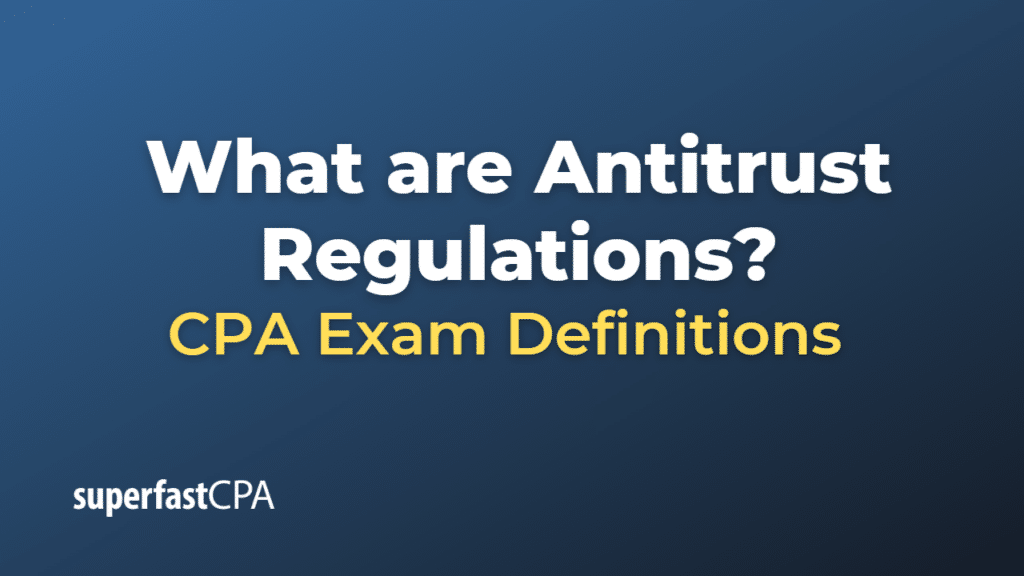Antitrust Regulations
Antitrust regulations are laws designed to promote and maintain fair competition in the marketplace, prevent monopolies, and protect consumer interests. These regulations aim to prevent companies from engaging in anticompetitive practices such as price-fixing, bid-rigging, and market allocation, which can harm consumers by limiting their choices, driving up prices, and stifling innovation.
In the United States, the main antitrust laws are the Sherman Act, the Clayton Act, and the Federal Trade Commission Act. These laws are enforced by the Department of Justice (DOJ), the Federal Trade Commission (FTC), and state attorneys general.
Some key objectives of antitrust regulations include:
- Preventing monopolies: Laws prevent companies from obtaining and maintaining dominant market power, which can lead to higher prices and reduced quality for consumers.
- Prohibiting cartels and collusion: Antitrust laws prohibit agreements between competitors that may harm competition, such as price-fixing, market division, or bid-rigging.
- Ensuring fair mergers and acquisitions: Antitrust laws require large mergers and acquisitions to be reviewed and approved by authorities to ensure they don’t reduce competition.
- Banning predatory pricing: Antitrust laws prohibit companies from selling products below cost to drive competitors out of business and gain market power.
- Preventing abuse of dominant position: Laws prohibit companies with significant market power from engaging in anti-competitive practices that harm competitors and consumers.
Antitrust regulations vary between countries and jurisdictions, but their overall goal is to ensure a competitive market environment that benefits consumers and encourages innovation.
Example of Antitrust Regulations
Here’s an example of an antitrust case involving price-fixing:
In 2012, the U.S. Department of Justice (DOJ) filed a lawsuit against Apple and five major book publishers, alleging that they had engaged in a price-fixing conspiracy to raise the prices of e-books. The case was known as United States v. Apple Inc.
According to the DOJ, the publishers and Apple colluded to raise e-book prices and limit price competition in the industry. They allegedly did this by adopting an “agency model” for e-book sales, where publishers set the retail price and retailers, like Apple, took a commission. This allowed the publishers to raise e-book prices above the $9.99 price point that Amazon had previously established.
In 2013, a U.S. District Court found Apple guilty of violating antitrust laws by conspiring to fix e-book prices. The company was required to pay a $450 million settlement, with $400 million refunded to e-book consumers and the remaining $50 million covering legal fees and payments to states.
In this case, antitrust regulations were enforced to protect consumers from artificially high e-book prices resulting from the alleged collusion between Apple and the book publishers. The enforcement of these laws aimed to restore competition in the e-book market and ensure that consumers continued to have access to a variety of affordable e-book options.













